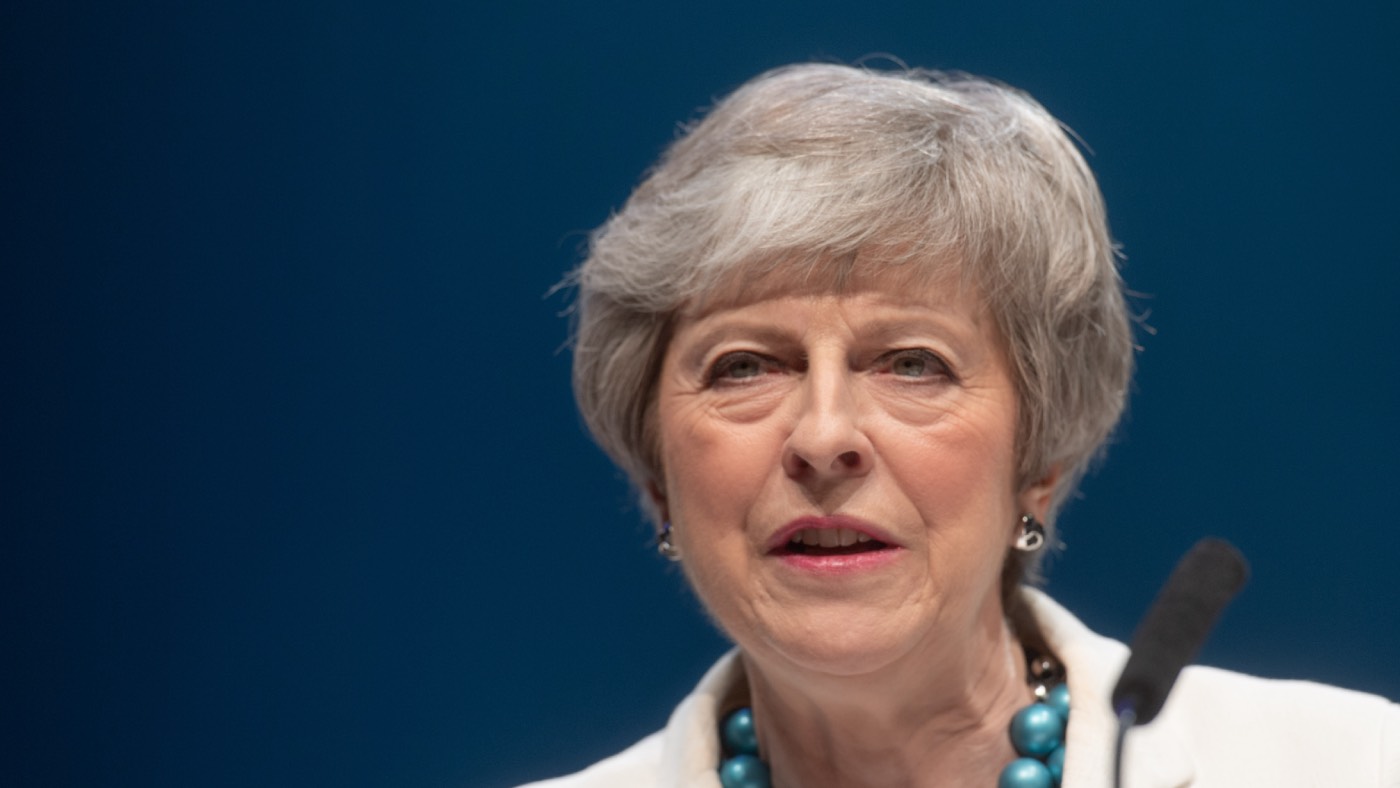Theresa May vows to end ‘postcode lottery’ for abuse victims
PM announces legal duty for councils to provide help for victims and their children.

A free daily email with the biggest news stories of the day – and the best features from TheWeek.com
You are now subscribed
Your newsletter sign-up was successful
The prime minister has vowed to end the “postcode lottery” for victims of domestic abuse, by creating a nationwide legal duty for councils to provide secure homes for victims and their children.
People seeking refuge from abusive and violent relationships currently receive varying levels of support depending on their location.
Sky News says “thousands of victims of domestic abusive will be better protected” under the plans. The Times adds that council leaders “have warned it would have to be backed up by central government funding”.
The Week
Escape your echo chamber. Get the facts behind the news, plus analysis from multiple perspectives.

Sign up for The Week's Free Newsletters
From our morning news briefing to a weekly Good News Newsletter, get the best of The Week delivered directly to your inbox.
From our morning news briefing to a weekly Good News Newsletter, get the best of The Week delivered directly to your inbox.
The Domestic Abuse Bill will usher in the first ever statutory government definition of domestic abuse. It will specifically include economic abuse and controlling and manipulative non-physical abuse.
The law will found a new Domestic Abuse Commissioner and prohibit the cross-examination of victims by their abusers in family courts.
The government has launched a consultation to calculate how much funding is needed and how it should be spent. It will speak to victims and survivors, as well as organisations supporting victims and their children every day.
Announcing the bill, the prime minister said the “abhorrent crime” of domestic abuse had “no place” in the UK. She said that she has “always vowed to leave no stone unturned in tackling domestic abuse”.
A free daily email with the biggest news stories of the day – and the best features from TheWeek.com
May continued: “Today we are ending the postcode lottery by placing on local authorities a legal duty to deliver support, including secure housing, to survivors of domestic abuse and their children.”
Addressing victims of domestic abuse, she said: “Whoever you are, wherever you live and whatever the abuse you face, you will have access to the services you need to be safe.”
Sandra Horley, chief executive of Refuge, said May’s plans could secure “life-saving services”.
“This has the potential to end the postcode lottery for refuge places and could put these life-saving services on a secure financial footing for the first time,” she said.
Nicki Norman of Women's Aid, said many of her organisation's member services are offering support on a “shoestring budget”, which means reliable, dedicated funding is “desperately needed”.
She said her organisation hopes to work with the government to ensure the “important move” is “safe, sustainable and delivers the resources that services urgently require to support all women and children fleeing domestic abuse”.
In 2017, The Guardian reported that austerity cuts meant services to vulnerable women were under threat.
The BBC reports this morning that funding of £22m has been made available to local councils to obtain more than 2,000 beds in refuges and other safe accommodation - and to provide access to education and employment.
-
 James Van Der Beek obituary: fresh-faced Dawson’s Creek star
James Van Der Beek obituary: fresh-faced Dawson’s Creek starIn The Spotlight Van Der Beek fronted one of the most successful teen dramas of the 90s – but his Dawson fame proved a double-edged sword
-
 Is Andrew’s arrest the end for the monarchy?
Is Andrew’s arrest the end for the monarchy?Today's Big Question The King has distanced the Royal Family from his disgraced brother but a ‘fit of revolutionary disgust’ could still wipe them out
-
 Quiz of The Week: 14 – 20 February
Quiz of The Week: 14 – 20 FebruaryQuiz Have you been paying attention to The Week’s news?
-
 Home Office worker accused of spiking mistress’s drink with abortion drug
Home Office worker accused of spiking mistress’s drink with abortion drugSpeed Read Darren Burke had failed to convince his girlfriend to terminate pregnancy
-
 In hock to Moscow: exploring Germany’s woeful energy policy
In hock to Moscow: exploring Germany’s woeful energy policySpeed Read Don’t expect Berlin to wean itself off Russian gas any time soon
-
 Were Covid restrictions dropped too soon?
Were Covid restrictions dropped too soon?Speed Read ‘Living with Covid’ is already proving problematic – just look at the travel chaos this week
-
 Inclusive Britain: a new strategy for tackling racism in the UK
Inclusive Britain: a new strategy for tackling racism in the UKSpeed Read Government has revealed action plan setting out 74 steps that ministers will take
-
 Sandy Hook families vs. Remington: a small victory over the gunmakers
Sandy Hook families vs. Remington: a small victory over the gunmakersSpeed Read Last week the families settled a lawsuit for $73m against the manufacturer
-
 Farmers vs. walkers: the battle over ‘Britain’s green and pleasant land’
Farmers vs. walkers: the battle over ‘Britain’s green and pleasant land’Speed Read Updated Countryside Code tells farmers: ‘be nice, say hello, share the space’
-
 Motherhood: why are we putting it off?
Motherhood: why are we putting it off?Speed Read Stats show around 50% of women in England and Wales now don’t have children by 30
-
 Anti-Semitism in America: a case of double standards?
Anti-Semitism in America: a case of double standards?Speed Read Officials were strikingly reluctant to link Texas synagogue attack to anti-Semitism